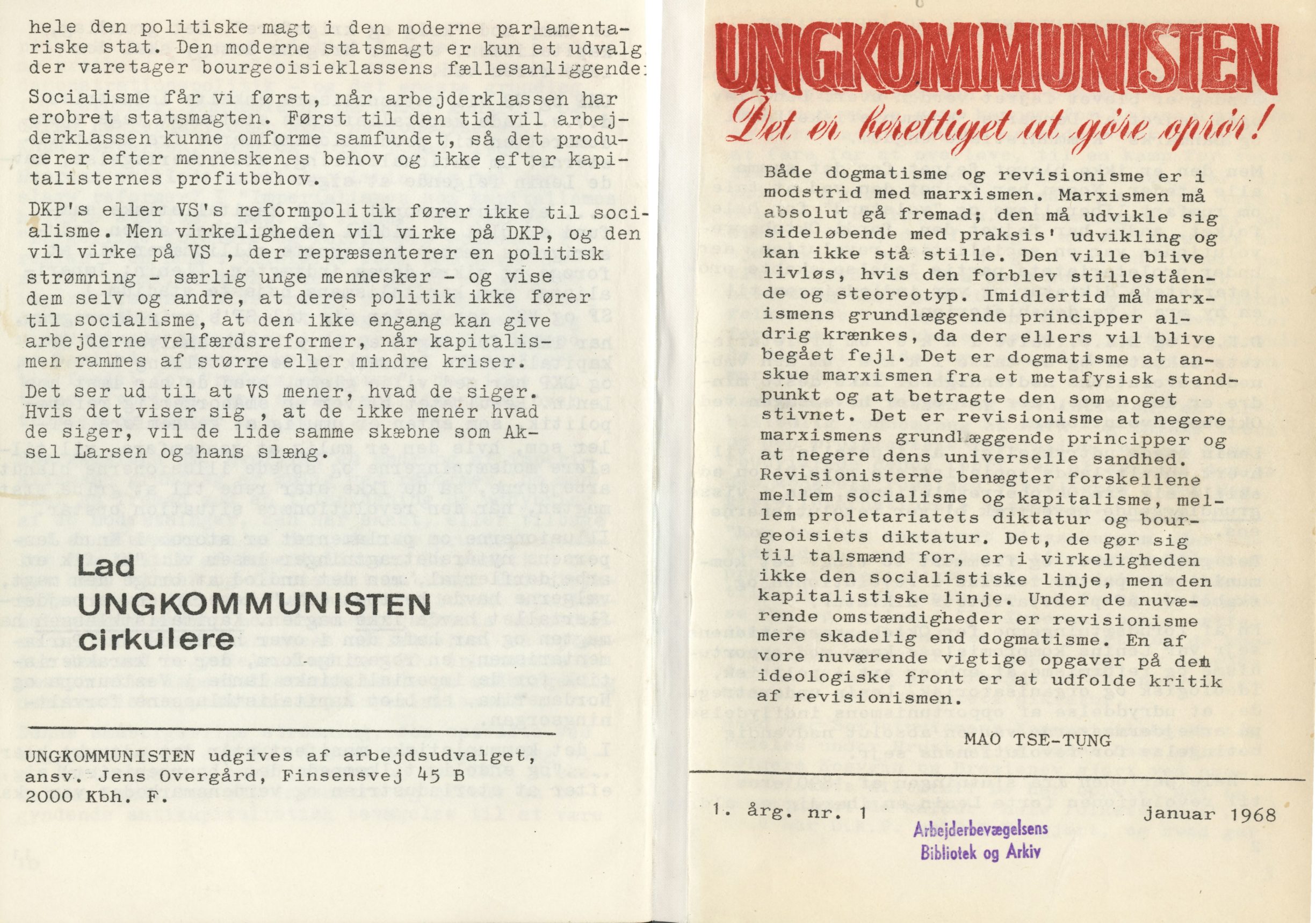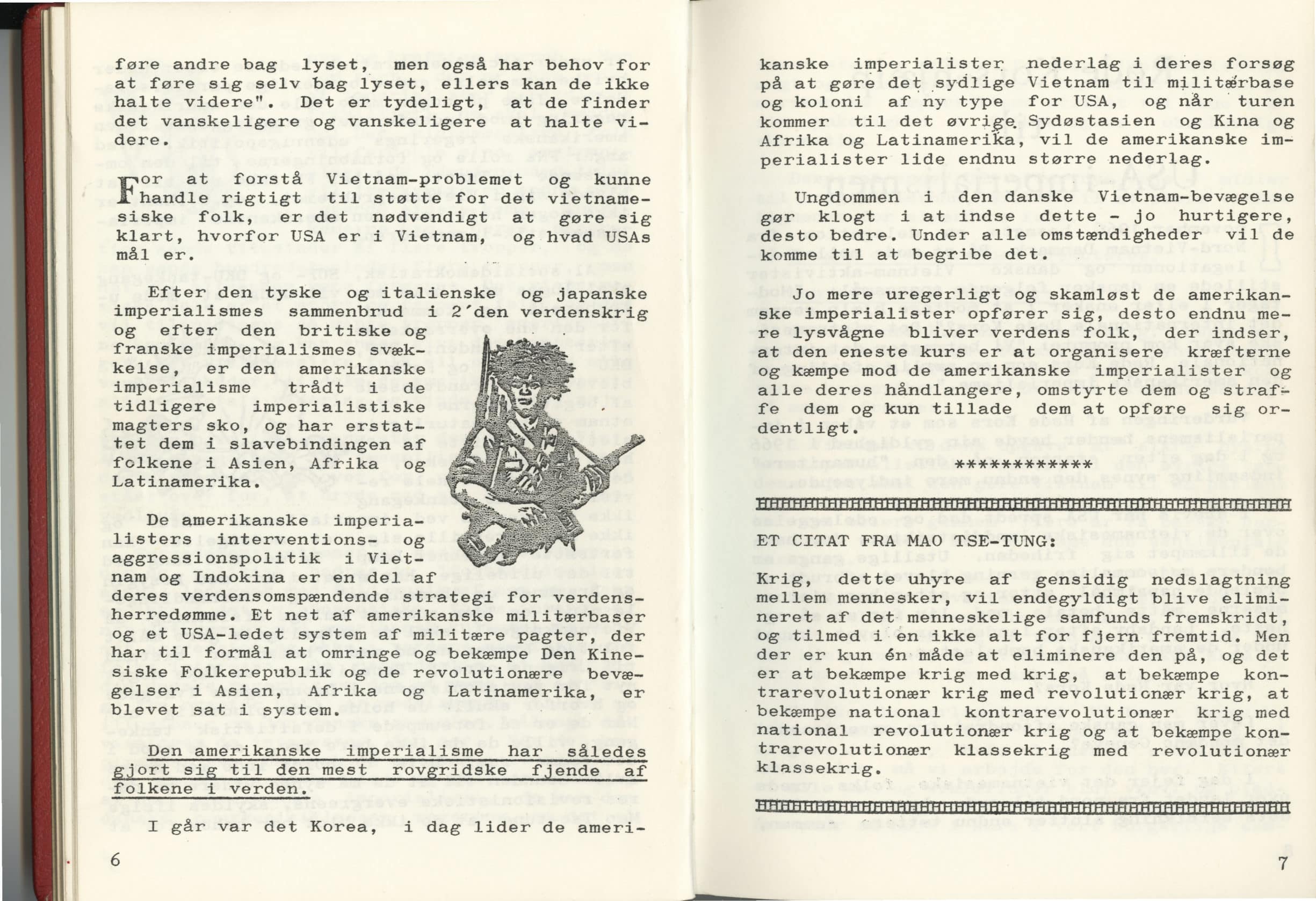About the text:
From: V.I. Lenin: On Imperialism and Opportunism, Futura 1974, 103 p., pp. 18-20.
(Extract)
Written August-September 1907.
Published in “Proletary”,
No. 17, October 20, 1907.
(…)
This is not the first time the colonial question has figured at international congresses. Up till now their decisions have always been an unqualified condemnation of bourgeois colonial policy as a policy of plunder and violence. This time, however, the Congress Commission was so composed that opportunist elements, headed by Van Kol of Holland, predominated in it. A sentence was inserted in the draft resolution to the effect that the Congress did not in principle condemn all colonial policy, for under socialism colonial policy could play a civilising role. The minority in the Commission (Ledebour of Germany, the Polish and Russian Social-Democrats, and many others) vigorously protested against any such idea being entertained. The matter was referred to Congress, where the forces of the two trends were found to be so nearly equal that there was an extremely heated debate.
The opportunists rallied behind Van Kol. Speaking for the majority of the German delegation Bernstein and David urged acceptance of a “socialist colonial policy” and fulminated against the radicals for their barren, negative attitude, their failure to appreciate the importance of reforms, their lack of a practical colonial programme, etc. Incidentally, they were opposed by Kautsky, who felt compelled to ask the Congress to pronounce against the majority of the German delegation. He rightly pointed out that there was no question of rejecting the struggle for reforms; that was explicitly stated in other sections of the resolution, which had evoked no dispute. The point at issue was whether we should make concessions to the modern regime of bourgeois plunder and violence. The Congress was to discuss present-day colonial policy, which was based on the downright enslavement of primitive populations. The bourgeoisie was actually introducing slavery in the colonies and subjecting the native populations to unprecedented outrages and acts of violence, “civilising” them by the spread of liquor and syphilis. And in that situation socialists were expected to utter evasive phrases about the possibility of accepting colonial policy in principle! That would be an outright desertion to the bourgeois point of view. It would be a decisive step towards subordinating the proletariat to bourgeois ideology, to bourgeois imperialism, which is now arrogantly raising its head.
The Congress defeated the Commission’s motion by 128 votes to 108 with ten abstentions (Switzerland). It should be noted that at Stuttgart, for the first time, each nation was allotted a definite number of votes, varying from twenty (for the big nations, Russia included) to two (Luxembourg). The combined vote of the small nations, which either do not pursue a colonial policy, or which suffer from it, outweighed the vote of nations where even the proletariat has been somewhat infected with the lust of conquest.
This vote on the colonial question is of very great importance. First, it strikingly showed up socialist opportunism, which succumbs to bourgeois blandishments. Secondly, it revealed a negative feature in the European labour movement, one that can do no little harm to the proletarian cause, and for that reason should receive serious attention. Marx frequently quoted a very significant saying of Sismondi. The proletarians of the ancient world, this saying runs, lived at the expense of society; modern society lives at the expense of the proletarians.
The non-propertied, but non-working, class is incapable of overthrowing the exploiters. Only the proletarian class, which maintains the whole of society, can bring about the social revolution. However, as a result of the extensive colonial policy, the European proletarian partly finds himself in a position when it is not his labour, but the labour of the practically enslaved natives in the colonies, that maintains the whole of society. The British bourgeoisie, for example, derives more profit from the many millions of the population of India and other colonies than from the British workers. In certain countries this provides the material and economic basis for infecting the proletariat with colonial chauvinism. Of course, this may be only a temporary phenomenon, but the evil must nonetheless be clearly realised and its causes understood in order to be able to rally the proletariat of all countries for the struggle against such opportunism [1]. This struggle is bound to be victorious, since the “privileged” nations are a diminishing faction of the capitalist nations. (…)
LCW vol. 13, pp. 75-77.
[1] See p. 28 in “Gotfred Appel: There Will Come a Day …”, Futura, 1971
The full text can be found online on Marxist Internet Archive:
https://www.marxists.org/archive/lenin/works/1907/oct/20.htm



























![[Papirtigre] – Et citat fra Mao Tse-tung Ungkommunisten 1968 nr. 2, omslag](https://snylterstaten.dk/wp-content/uploads/2014/06/Ungkommunisten1968_02_B16_01.jpg)



